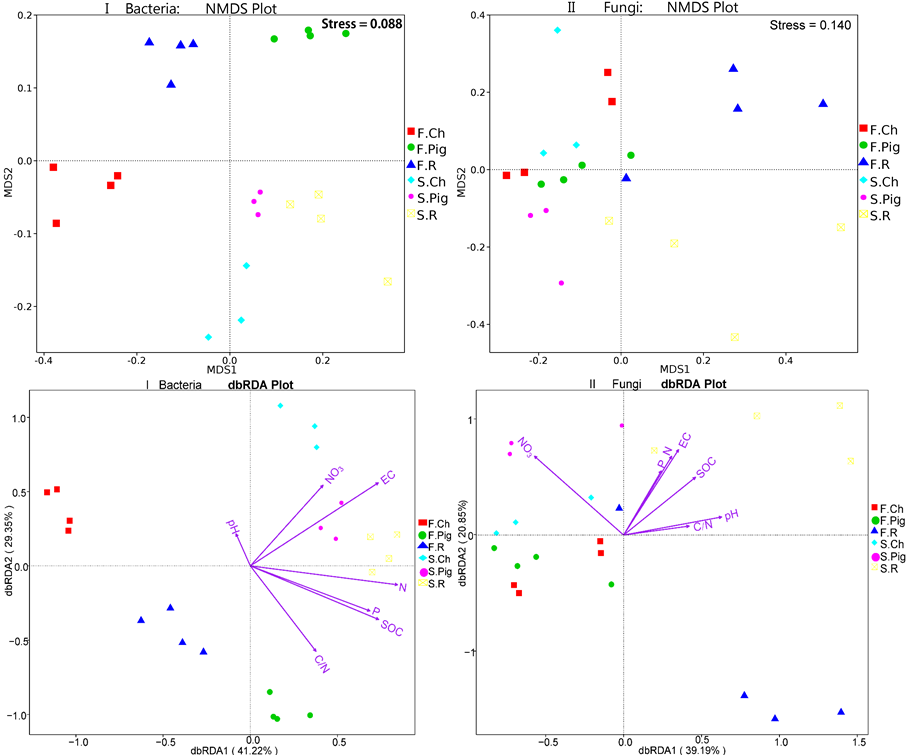The amount of chemical fertilizer for vegetables is on the high level in China. The use of organic fertilizers to meet the nutrient requirement of crops will be an inevitable practice in sustainable agriculture. We hypothesized that chemical fertilizer, rabbit manure organic fertilizer and pig manure organic fertilizer have different effects on soil physico-chemical properties and microbial community, and affect soil microbial community composition through higher pH and higher organic carbon content of organic fertilizer. The results were as follows: (1) In the first season, the fresh yield of Brassica rapa var. Chinensis applying chemical fertilizer was significantly (P ≤ 5 %) higher than those of applying the pig manure and rabbit manure fertilizer, and the results were the opposite in the second season. (2) The organic fertilizer increased the concentration of total nitrogen, total phosphorus and organic carbon in soil in both two seasons. Rabbit manure fertilizer increased the soil pH and EC and significantly (P ≤ 5 %) reduced the soil NO3-N content. (3) The pig manure and rabbit manure fertilizer significantly (P ≤ 5 %) increased the diversity and abundance of soil bacterial of Brassica rapa var. Chinensis, but had no significant effect on soil fungi. There were significant differences (P ≤ 5 %) in the bacterial community structures between three treatments in two seasons, and significant differences (P ≤ 5 %) in the fungal community structures between fertilizer treatments while not between two seasons. Distance-based redundancy analysis (dbRDA) showed that soil EC, TN, and organic carbon content were key physico-chemical factors in determining bacterial community structure in Brassica rapa var. Chinensis soil, and soil NO3-N, EC, SOC concentration and soil pH in the fungal community structure.

Read more: https://doi.org/10.3389/fmicb.2023.1132853


